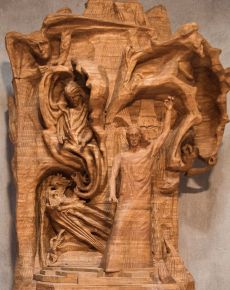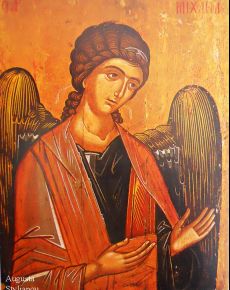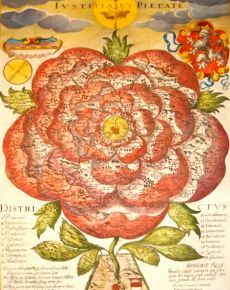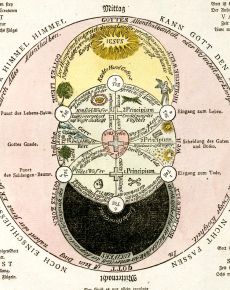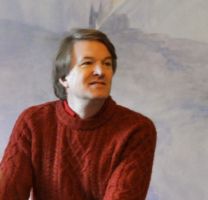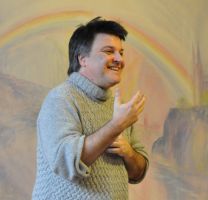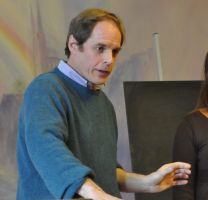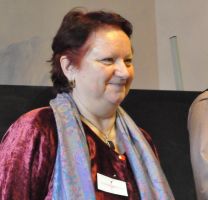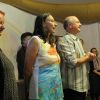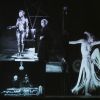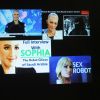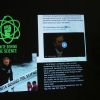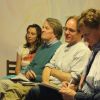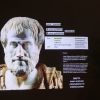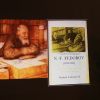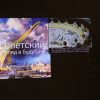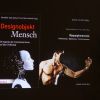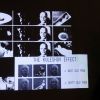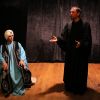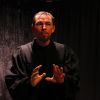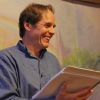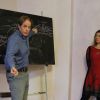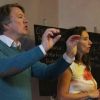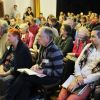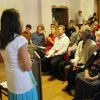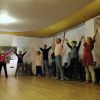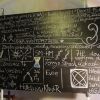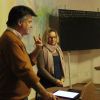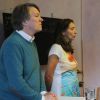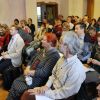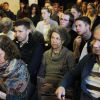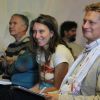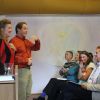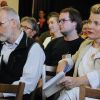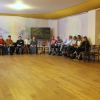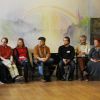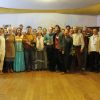Programme 2025
5. - 7. December 2025 in the Anthroposophical Society, Hošťálkova 392/1d, Prague 6 - Břevnov
You will find below the topics of this year´s conference. The conference starts on Friday 16 May at 4pm (registration) and finishes on Sunday May 18 at 3 pm. The detailed programme will be available soon and posted here. Registered applicants will receive the detailed programme together with other information about the conference by e-mail.
The Metaphor of War as a Distortion of a “European idea” / Markus Osterrieder
In response to major global political changes, politicians and the
media in the European Union are reacting with a multi-billion euro
initiative to rearm Europe, which is being presented under the slogan
“Rearm Europe / Readiness for 2030”. As with the declaration of a
Covid-19 pandemic, the appeal for the population to pull together is
being boldly made with the help of scenarios of threat. However, this is
yet another orchestrated distraction from the changes taking place in
the nature of human beings, which are hidden in the imagination of a
‘child of Europe’ and its powers.
The I-Sense and the Dialogical Principle / Markus Osterrieder
At
the beginning of the 20th century, Europe not only suffered the
devastation of the First World War, but also received the seeds of a new
way of thinking about human abilities that we urgently need to develop a
healthy social life. These abilities can be traced back to the life of
the ‘child of Europe’, Kaspar Hauser.
‘The I-sense does not refer to our
capacity to be aware of our own I. This sense is not for perceiving our
own I, the I which we first received on Earth; it is for perceiving
the I of others. What this sense perceives is everything that is
contained in our encounters with another I in the physical world.’
(Rudolf Steiner, 2 September 1916)
Why is 'Britain' 'leading' a 'European' drive against Russia? / Terry Boardman
It's clear to many that, in addition to the Zelensky regime, it is
Britain that has been banging the war drums loudest over the Ukraine
War. Why is this? Some 400 years after the Defenestration of Prague in
1618 and 100 years after the death of Rudolf Steiner, are Europe’s
‘leaders’ going to drive their populations into a continental-scale war
yet again, as they last did in 1939? Have Europeans learned nothing in
80 years? Where are Europe’s true interests here? Anthroposophy is the
modern Rosicrucian path; how can it throw light on the current
geopolitical situation?
Making Sense of the Trump Phenomenon / Terry Boardman
Trump is clearly no ordinary politician; he is an historical
phenomenon. No other US leader has been so hated, vilified, lauded and
idolised. Is he simply a retrogressive agent of chaos in world affairs,
or a positive 'disrupter'? American nationalist, Zionist or globalist?
What does his appearance reveal about the current condition of the USA?
And what might he have in common with the Prophet Mohammed and Helena
Petrovna Blavatsky?
The Michaelic Stream in Modern Culture and its Inversion / Richard Ramsbotham
This lecture will explore the large-scale initiatives of
Daniel Dunlop and Walter Johannes Stein, in the 1920s, 1930s and 1940s,
intended to bring about major positive change in the political and
economical realms, in alignment with Rudolf Steiner’s work on the
transformation of the social order and the Michaélic demands of the
present age. It will also look at the opposition that this received,
usually in the form of counter-initiatives which appeared similar, but
in fact had very different aims. This countering of the Michaélic stream
with its inversion has continued to grow in strength and is often
tragically mistaken for something genuinely beneficent. The story of
this – and the challenge of discerning the difference between the
reality and its inversion – continues to be of immense significance
today.
The Convergence of Religions in the Spirit of
Rosicrucianism and the Obstacles and Opposition to this in Contemporary
Civilization / Richard Ramsbotham
What is meant by the convergence of religions in the light
of Rosicrucianism? How is it possible that many who call themselves
Christian can nonetheless support the territorial and religious aims of
Zionism? In the context of the increasing polarity between globalism and
nationalism, many strange contradictions have arisen as people attempt
to find new ways forward. One such impossible contradiction – or
oxymoron - is the term ‘Christian Nationalism’. Can this help bring
about peace or only lead to further wars? What does anthroposophy have
to say about the polarity between globalism and nationalism? This
lecture will intend, above all, to raise questions regarding Zionism,
nationality and the potential transformation of nation-states and
world-wide society in the light of true human freedom and individuality.
What would the world look like had it not been for Rudolf Steiner? / Anežka Janátová
Why are we looking for Anthroposophy today? / Anežka Janátová
